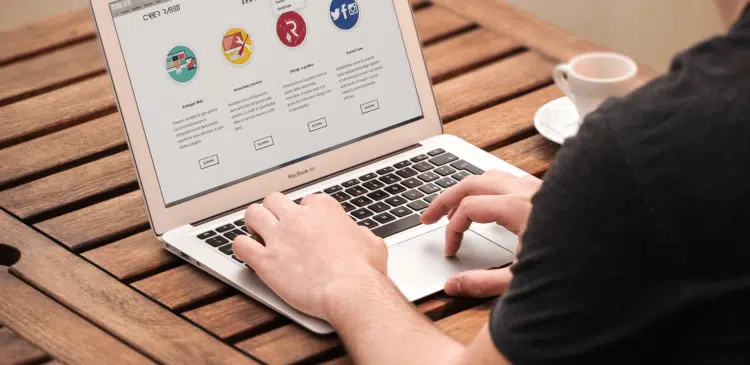What to Look for in a Web Designer

In the modern world of the internet, your website is usually the first impression of your business. As a small business owner, an entrepreneur or the manager of a large organization, you cannot afford to make the wrong decision when it comes to the selection of your web designer. With thousands of web designers in the market how do you select the right one?
This guide will explain everything you need to know about what to look for in a web designer.
Experience and Expertise
Know Their Background
Experience of a web designer is one of the first things to consider. How long have they been in the industry? Do they have specific expertise with one type of site or platform (such as WordPress, Shopify, or custom-coded sites)?
A designer with some real-world experience will be more likely to foresee issues and design solutions that will be effective.
Portfolio Matters
Always ask to see their portfolio. A good designer should proudly showcase their previous work. This will provide you with their style, range and the kind of businesses they have worked with.
Examples of visually interesting, straightforward to navigate, and quick-loading sites can be sought.
Understanding of Design Principles
User Experience (UX) Focus
It is no good having a great looking site that is not user friendly. A professional web designer must understand how to arrange an easy layout that can move visitors through the site in an easy manner.
Look for:
- Clear navigation
- Easy-to-read fonts
- Effective calls to action (CTAs)
Mobile Responsiveness
More than 60 percent of web traffic in the U.S is through mobile devices. Your web developer should design a responsive web that will appear and operate well on mobile phones and tablets.
Technical Skills
Knowledge of Web Technologies
Your web designer must be well versed with the technical aspect such as:
- HTML/CSS
- JavaScript
- CMS platforms (like WordPress, Wix, or Squarespace)
- SEO fundamentals
They do not need to be full-stack developers, but they should know how to code and design interfaces.
Speed and Performance Optimization
Slow websites lead to lost visitors. A good web designer will also streamline the performance of your site so that it loads quickly and it has minimal downtimes.
SEO Awareness
On-Page SEO Basics
Search Engine Optimization (SEO) isn’t just about content.
Your web designer should understand:
- Proper use of heading tags (H1, H2, etc.)
- Clean code structure
- Image optimization
- Fast page load speeds
- Mobile optimization
A site that was built with the consideration of SEO would have higher chances of ranking on Google and picking up organic traffic.
Communication and Collaboration Skills
Clear Communication
Working with a web designer is a collaborative process.
You’ll want someone who:
- Listens to your goals and needs
- Explains technical terms in simple language
- Responds to emails or messages promptly
Project Management
Ensure that they are able to handle schedules and establish expectations regarding project milestones, deliverables and revisions. Missed deadlines and unclear communication are red flags.
Customization and Flexibility
Tailored Solutions
It is not good to hire designers who apply the same layout on each project. Your company is special and your web page should be as well.
A great web designer will:
- Understand your brand identity
- Customize the design to match your goals
- Offer creative solutions, not just cookie-cutter layouts
Room for Growth
Your website needs may grow over time. Your designer should be able to build a site that can be scaled easily whether you intend to add a blog, an eCommerce store or a booking system in the future.
Pricing and Value
Transparent Pricing
Although you should not choose a web designer only because of the cost, you must be aware of what you are paying.
Look for:
- Clear, itemized quotes
- No hidden fees
- A defined scope of work
You Get What You Pay For
Inexpensive web design will save you money in the short term but may end up costing you more with redesigns, security or performance problems. Invest in quality design—it pays off.
Post-Launch Support
Maintenance and Updates
Websites require upkeep- be it security patches, bug fixes, or adding new content. Ask your web designer what after sales support they provide once the site is live.
Training and Handover
The designer must offer training or documentation to you in case you intend to update the site yourself. A good designer does not make you dependent on them to make every small change.
Client Reviews and Testimonials
Read What Others Say
Through Google, Yelp, or LinkedIn, make sure you check reviews about a person before you hire them. Testimonials are another good sign of quality and competency.
Ask for References
Don’t be afraid to ask for direct client references. A brief phone call or email to an old customer can provide you with information about what it is really like to work with the designer.
Cultural Fit and Passion
Shared Vision
Besides technical skills, your web designer must be passionate about your business and be aware of your business objectives. When you are creatively in tune with each other, it becomes less of a struggle and more fun.
Passion for Design
A designer who loves what he/she does will go an extra mile in order to make your site stand out. Seek out an enthusiastic person with an interest in your project, not a clock-puncher.

 Bill Yeager, Co-Owner of High Point SEO & Marketing in CT
Bill Yeager, Co-Owner of High Point SEO & Marketing in CT